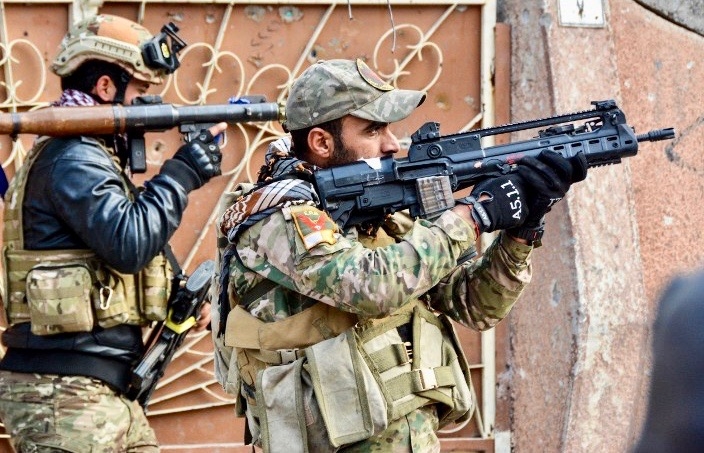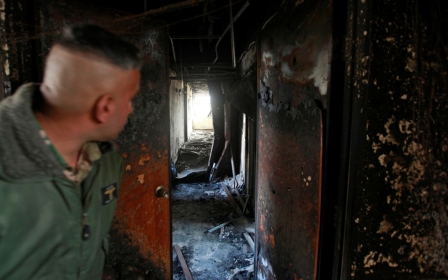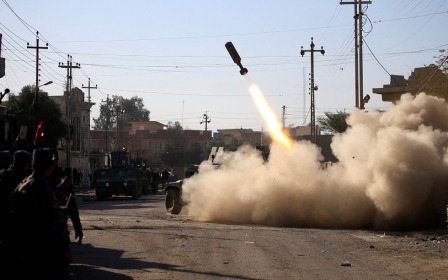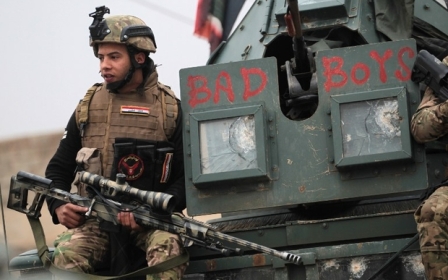Iraqi forces retake Mosul university from Islamic State

Iraqi forces on Saturday retook Mosul university from the Islamic State (IS) group, the latest key advance in efforts to recapture the eastern side of the city, officers said.
"We can say that the university has been liberated," Maan Saadi, a major general in the Counter-Terrorism Service (CTS), told AFP.
The vast Mosul University campus, one of the biggest in Iraq, lies in the north of the city on the east bank of the Tigris River that splits Mosul in two.
"We have done the hardest part... we may recapture the entirety of the eastern side in the next 10 days or so," Saadi said.
The top CTS commander, General Taleb Sheghati al-Kenani, spoke to state-run Iraqiya TV from the university.
Saadi estimated Iraqi forces had now recaptured 85 percent of the eastern side since the 17 October launch of a huge offensive to retake Mosul, the militant’s main stronghold in the country.
The initial phase of the offensive saw a variety of forces retake significant swathes of land in little time but the going has been tough inside the city itself.
After a lull in operations, the CTS and other forces stepped up their coordination and, with increased air and advisory support from a US-led coalition, launched a fresh push just before the New Year.
Over the past two weeks, Iraqi forces have overrun several districts and reached the Tigris River.
The destruction of all bridges over the river in air strikes has made it difficult for IS fighters in east Mosul to resupply or escape to the west bank, which they still fully control.
The western side of Mosul, which is home to the old city and some of the militants’ traditional bastions, was always tipped as likely to offer the most resistance.
Field hospital
Meanwhile, civilians and soldiers wounded as Iraqi forces attempt to retake Mosul are receiving treatment in a high-tech field hospital about 20km from the frontlines.
Treating shrapnel, bullet and bomb wounds, the facility - complete with emergency rooms, intensive care units and a fully-stocked pharmacy - was set up by US relief organization Samaritan's Purse after Christmas in a patch of desert about half an hour's drive from clashes in eastern Mosul.
It has shaved considerable time off the journey to the Kurdish city of Erbil, the nearest place with fixed health-care facilities, and more than 100 patients have already been treated.
"We've seen teenagers with sniper fire to the back of their heads, six-year-olds shot in the abdomen, people with wounds in their back as they were trying to run away," said David Gettle, 68, the hospital's administrator.
"When they were injured in Mosul, they had to make a two- to three-hour trip through checkpoints, ambulance transfer, and people were actually dying trying to get help."
An ambulance transfer is required at the border with the autonomous Kurdistan region, which heavily restricts entry.
"We have all the different things that I work with in a hospital in the United States," said intensive care nurse Brittany Barclay, 27.
"They receive great care ... Time is very important. The close proximity to the front lines, though it's more dangerous, is what's saving patients' lives."
Middle East Eye propose une couverture et une analyse indépendantes et incomparables du Moyen-Orient, de l’Afrique du Nord et d’autres régions du monde. Pour en savoir plus sur la reprise de ce contenu et les frais qui s’appliquent, veuillez remplir ce formulaire [en anglais]. Pour en savoir plus sur MEE, cliquez ici [en anglais].




